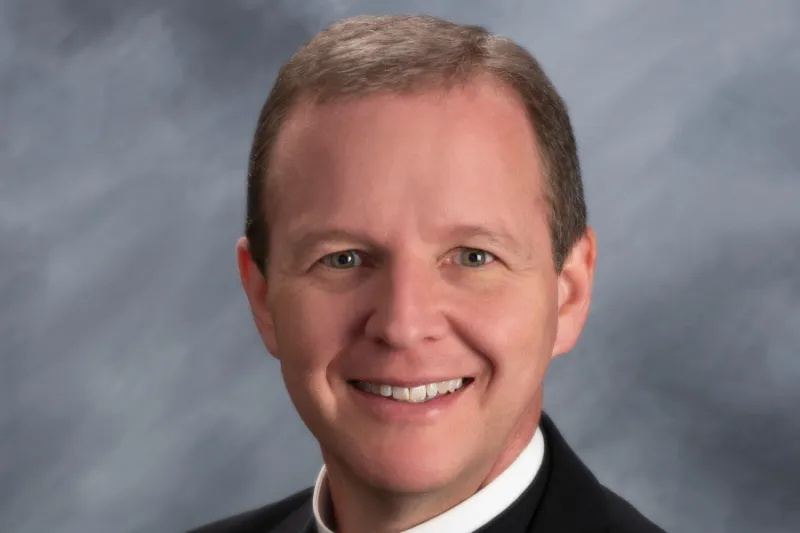
Vatican City, May 24, 2022 / 05:15 am (CNA).
Pope Francis on Tuesday appointed Arkansas priest Father Erik Pohlmeier as the next bishop of the Diocese of St. Augustine, Florida.
Bishop-elect Pohlmeier, 50, will succeed Bishop Felipe J. Estévez, 76, whose retirement was accepted by Pope Francis on May 24.
Pohlmeier’s consecration as bishop and installation in the diocese will take place on July 22.
“I am grateful for every way I have been called to serve the Church and am humbled by this opportunity to serve in the place where Mass was first celebrated in the United States. May God be praised for any good work I am able to do,” Pohlmeier said in a statement on May 24.
Bishop Anthony B. Taylor of Little Rock said that Pohlmeier “is one of the most capable, beloved, and admired priests of the Diocese of Little Rock, and he will be sorely missed.”
Taylor noted that Pohlmeier “is fluent in Spanish and brings to the Diocese of St. Augustine a personal experience of the full spectrum of Catholic life acquired over the course of 24 years of priestly ministry in every apostolate imaginable: urban, rural, and suburban, in which he has served people of every ethnicity, income level, and culture, both in parish life and in diocesan apostolates, most recently as the director of faith formation.”
“We are all one Church, so while we in Arkansas are proud of Bishop-elect Pohlmeier and sending him to Florida will be a great sacrifice for us, we rejoice in the good fortune of the Diocese of St. Augustine and know that the Lord must love them very much to give them such a fine man to be their next bishop,” he said.
The Diocese of St. Augustine covers 17 counties in Northeast and North Central Florida, and serves more than 153,000 Catholics.
Pohlmeier is currently pastor of Little Rock’s largest Catholic parish, Christ the King, and has served as director of the office of faith formation and office of deacon formation since 2016.
He was born in Colorado Springs on July 20, 1971, but grew up in Paris, Arkansas, with three brothers and one sister.
He entered seminary in 1992, after graduating with a degree in mechanical engineering from the University of Arkansas in 1991.
The bishop-elect studied undergraduate theology at Rome’s Gregorian University. He also received a master’s in spiritual theology from the University of St. Thomas Aquinas (the Angelicum) in Rome while attending the North American College seminary.
In 1998, he was ordained a priest for the Diocese of Little Rock, which encompasses all of Arkansas.
Since 2003, he has been a theological consultant for the Arkansas Catholic newspaper.
From 2007 to 2016, Pohlmeier was on the national board of directors of Couple to Couple League, a non-profit organization that provides instruction in fertility awareness and Natural Family Planning.
The bishop-elect has been director of continuing education for clergy since 2019.
If you value the news and views Catholic World Report provides, please consider donating to support our efforts. Your contribution will help us continue to make CWR available to all readers worldwide for free, without a subscription. Thank you for your generosity!
Click here for more information on donating to CWR. Click here to sign up for our newsletter.





This exciting news made my heart jump with joy!
It would appear that an excellent choice has been made and the Floridian folks are blessed!
Wishing Bishop-elect Erik Pohlmeier and his flock divine blessings.